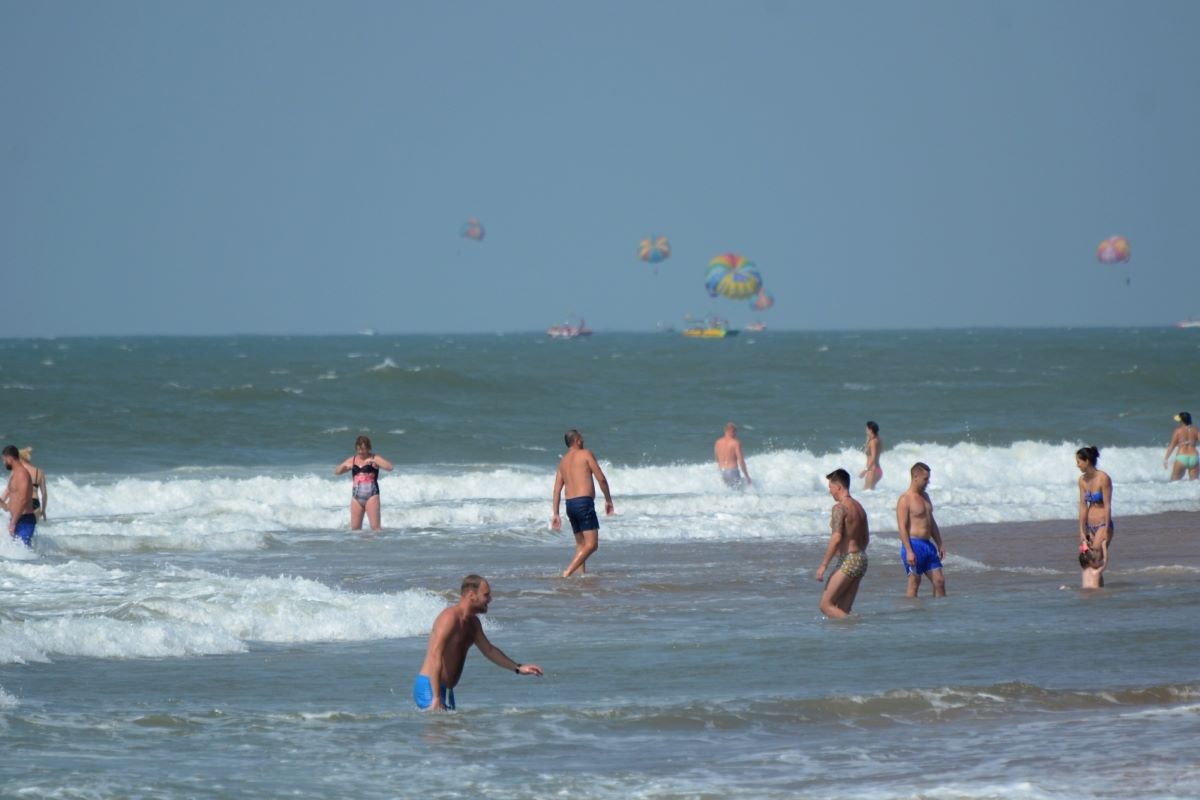KMC starts waste demolition plant
The agency is supposed to handle the processing plant for 10 years. According to Mr Hakim, such waste that is a burden for the civic body, now would be a crucial source of income for the KMC in future.
“Top reasons for the decline of tourism in the state in recent years were safety, roads, and garbage; while other reasons were high prices, theft, food, etc,” the study states describing the reasons as “major concerns leading to negative sentiments” about tourism in Goa.

Goa beaches(Picture: stock)
Safety issues, poor roads, and garbage management, as well as exorbitant prices and theft, are some of the key reasons for the decline in tourist growth in Goa, a big data study conducted by the Goa Institute of Management has revealed.
The study authored by Shikha Aggarwal and Alekh Gour, faculty members at the state’s top B-school specialising in operations management and big data analytics, respectively, have also said that big data analytics could help address the coastal state’s tourism travails by a quick assessment of real-time data uploaded to the internet and social media by visiting tourists.
Advertisement
The study published in the latest edition of the Journal of Hospitality and Tourism Management is based on 31,295 reviews posted to the Tripadvisor portal by tourists visiting the coastal state.
Advertisement
“The results show that top reasons for the decline of tourism in the state in recent years were safety, roads, and garbage; while other reasons were high prices, theft, food, etc,” the study states describing the reasons as “major concerns leading to negative sentiments” about tourism in Goa.
The study coincides with the findings of a white paper released by the Confederation of Indian Industry (CII) on the Goan economy which warns of declining growth rate in tourist footfall in Goa.
The big data study compiled by Aggarwal and Gour may well help the tourism industry spot lacunae — many of them glaring — in the functioning of the tourism sector, through the study of spontaneous and first-hand responses and reviews made by tourists themselves through a novel methodology based on web analytics tools.
“This is unprecedented and can lead to an understanding of overall tourist behavior and patterns for a given city or country. Henceforth, a comprehensive model is developed that can be used to investigate the trends in tourism over a period and detect changes in sentiments,” the study says.
The study has also categorized tourists’ anxieties which find reflection in their comments and suggests that the hospitality sector and other service providers could look to address them in real-time.
“Firstly, businesses such as hotels, restaurants, shopping complexes, etc could make focused efforts in handling the negative aspects of a tourist destination. For example, it has been observed that parking has been a concern for some places in the state. Hotels and restaurants could offer a free pick and drop facility to attract and comfort tourists,” the study states.
Big data analysis of the pool of data available online could also help new businesses identify the gaps in the tourism industry so that “service providers could study in detail the tourists’ sensitivity towards pricing and incorporate that, and food companies could open outlets at the places where negative comments have been posted owing to the non-availability of any food joint in the vicinity.”
Nilesh Shah of the Travel and Tourism Association of Goa said that the association has been requesting the Goa government for years for carrying out a detailed data-based study of the tourism sector.
“We have been telling the Goa government to set up a data center in Goa to track tourism-related data. We had even suggested that experts in the Goa University or the Goa Institute of Management could be roped in to analyze the data collected,” Shah said.
“Analysis of this data could actually help us understand the real needs of tourists as well as rationalize our promotional spending on areas where it is really required,” he also said.
Hemant Arondekar, Confederation of Indian Industry’s convenor of the state panel on tourism said that “big data could help us sharpen our focus and help identify and promote tourism experience based on feedback from tourists.”
Advertisement